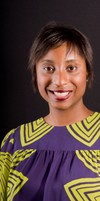Image via Stocksy
"We've become a true failing country. We do not have a homeland for any Syrian--there's no government in charge," said Syrian-based women's rights activist, Azra*, when asked about the current climate she lives in. Azra resides in Aleppo, an area that's now made up of bombed out buildings, shattered glass, rubble and remnants of barrel bombs-a device made up of shrapnel and used in combat.It's in this demolished residence with long periods of fragmented electrical service, she teaches women life skills and the importance of building an independent and sustainable life for themselves and their children still in Syria--a nation that has now witnessed 200,000 deaths and gross human rights violations in the last year, a figure provided by the United Nations and listed in the 2014/2015 Amnesty International Annual report.According to Azra, the human rights abuses are coming in all forms, including women being used as objects of sex. But, there are also good stories of women's lives being transformed. "It's Syrian tradition for women to stay at home, but because of this war, women have found themselves alone or (taking on) new responsibilities," the activist explained. To be exact, she said, "there are great numbers (of women) who are becoming breadwinners because their husbands, fathers and sons are in jail, dead or kidnapped." And this action is an empowering move.Yet, the new voice being curated by Syrian women has only taken them a few baby steps farther when it comes to gender equality outside of the home and in political life. The reasoning for this, is that, "the world lives in a patriarchal society," Mariam Jalabi, the director of the National Coalition of the Syrian Revolution and Opposition Forces, representative Offices to the United States and the United Nations said in regards to women's roles.The National Coalition of the Syrian Revolution and Opposition Forces, representative Offices to the United States and the United Nations was formed in 2012 to represent all parties of the Syrian opposition. The Syrian opposition has spent the last four years attempting to take down the current Syrian President: Bashar al-Assad and his regime.The goal of the opposition forces is to form a new Syrian government without President Bashar al-Assad, a person that's now on the International Criminal Court's (ICC) top Syrian war criminal list. The new reign of power would ideally include the voices of women because of their inclusiveness, practicality and family based ideology, the director explained. But, the focus on the attributes women can bring to the table are lost because of Syrian culture and urgent priorities.The Syrian born and raised director stated that, "our culture (isn't) used to seeing women or having women in decision making places, they are not very encouraging…they are not helpful… because they don't see the value in what women do for them.""So, we can't get ahead," Jalabi said, while highlighting the responsibilities of women in her own organization, a group dedicated to creating a new political make up of Syria. "There are a lot of women in the second tier. It means (they) direct the office. But, when it comes to having conversations on legislation and political talks, they don't have women." Even if women participate in these conversations, women are not given equal responsibilities like in the last round of Geneva talks between the opposition and the Assad regime.In that situation, women formed the Women's Initiative For Peace And Democracy, a group that focuses on detainees and humanitarian issues instead of the nuts and bolts of political language and the future of Syria. This stems from the belief that "women don't see themselves in politics (and) it's not seen as the best role for women," an ideology that the director said is embedded in the culture.So now, women are forced to wait on the sidelines until more men want to push them in and other women decide to elevate their sound in the political arena above a murmur.It is best said by Azra, "I don't think there's a political solution now and I don't think there's anyone that can win." So the fight for women to have a seat at the legislative table will be an uphill battle, plagued with roadblocks and "dead" ends because of the enduring implications of the Syrian conflict like hunger, shelter, and safety being prioritized.*Name has been changed due to safety issues.
Advertisement
Advertisement
